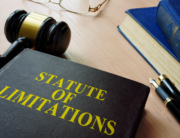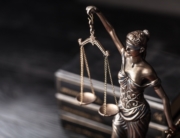Sometimes the law will treat someone as if he had actual knowledge of a fact, even if he did not, under the legal theory of constructive knowledge in a premises liability case. Constructive knowledge is an essential concept because, in some situations, the law will impose liability based on constructive knowledge.
What Is Constructive Knowledge Generally
A person cannot protect himself from liability through intentional ignorance of facts. The law will assume that a person has constructive knowledge of a fact if he should have known that fact through the exercise of due diligence.
For example, the manager of a grocery store instructs his shift leaders not to tell him about leaking freezer compartments in the store because he does not want to pay to get them repaired. When someone slips and falls because of a puddle from malfunctioning equipment, the store manager cannot avoid liability for the customer’s injuries by claiming that he did not know about the leaks. The law will presume that he had constructive knowledge.
Ignorance of the facts does not have to be intentional to amount to constructive knowledge. If a person failed to ask the standard questions or was negligent in some other way and that conduct resulted in not knowing essential facts, the law can treat the person as if he had constructive knowledge.
Let’s say that the management company of a high-rise apartment building did not have any staff member assigned to ensure the elevators were inspected regularly and schedule needed repairs. If someone gets hurt because of a mechanical failure in an elevator, the company cannot get out of liability for the person’s injuries by claiming ignorance of the defect. If the firm had done its job correctly, they would have discovered the problem.
Why Constructive Knowledge Matters in Premises Liability Cases
Constructive knowledge in a premises liability case is important when trying to hold a landowner responsible for injuries that happen on their property.
We have to prove all of these factors in premises liability cases:
Dangerous Condition
There had to be a dangerous condition on the property. Tripping over one’s own feet will not subject a property owner to liability. Having unsecured electrical cables across the walking path in a dimly lit hallway leading to a restaurant’s bathroom is a dangerous condition because it is a tripping hazard.
Owner Knew of Should Have Known of the Hazard
The owner must have had actual knowledge (the owner knew) or constructive knowledge (the owner should have known about the condition). The restaurant manager might claim that he did not notice the cables, but a court would likely decide that he should have known about them. If he had walked down that hallway and done his job to ensure the safety of the premises, he would have noticed the tripping hazard.
Landowner Did Not Fix Flaw or Post Warnings
An owner with actual or constructive knowledge of a dangerous condition must repair the problem or post sufficient warnings to prevent injuries to people who are on the property legally, as owners have a duty of care to visitors on their property, according to Florida statutes. Failure to do so can subject the owner to liability when people get hurt because of the hazard. If the restaurant manager did not secure the cables or relocate them to an area where people would not trip on them, such as running them through the ceiling instead of the floor, the owner will be liable to injured people.
Getting Help for a Premises Liability Case
At the Montero Law Center, we care about people who get hurt because of someone else’s carelessness. Call us today at (954) 767-6500 for a free consultation before the statute of limitations under Florida law. There is no obligation.
 English
English  Español
Español 



